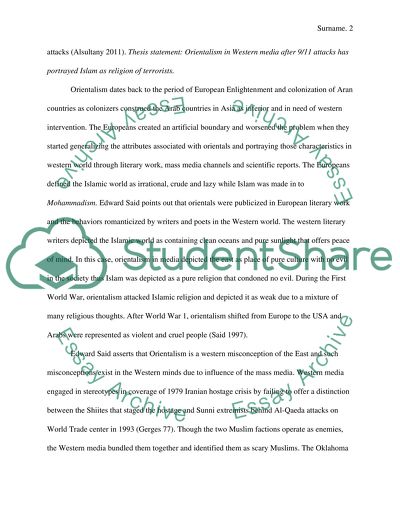Cite this document
(“Sociology of Islam: Orientalism in the media before and after 9/11 Research Paper”, n.d.)
Retrieved from https://studentshare.org/sociology/1498109-sociology-of-islam-orientalism-in-the-media-before
Retrieved from https://studentshare.org/sociology/1498109-sociology-of-islam-orientalism-in-the-media-before
(Sociology of Islam: Orientalism in the Media before and After 9/11 Research Paper)
https://studentshare.org/sociology/1498109-sociology-of-islam-orientalism-in-the-media-before.
https://studentshare.org/sociology/1498109-sociology-of-islam-orientalism-in-the-media-before.
“Sociology of Islam: Orientalism in the Media before and After 9/11 Research Paper”, n.d. https://studentshare.org/sociology/1498109-sociology-of-islam-orientalism-in-the-media-before.


